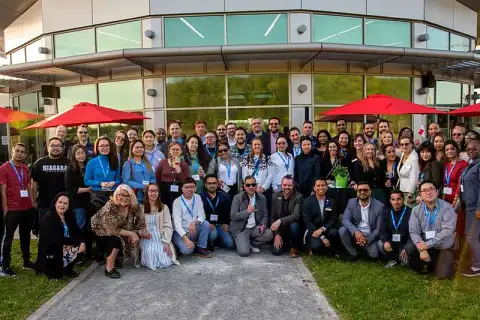Certificate - Electrical Techniques
- 1 year
- Duration
- 18,744 CAD
- Price
- Rolling admission
- Start
- Rolling admission
- Deadline
- Certificate
- Degree
- Campus
- Format
- Welland / Canada
- Location
Program description
Do you like doing manual labor and want to contribute to Ontario's need for qualified electrical workers?
As a graduate in Electrical Techniques, you have the foundational electrical knowledge and abilities required for entry into the workforce as well as a solid base for further electrical study.
Highlights
- Learn from supportive, highly qualified instructors who are authorities in their fields.
- An ideal, applied learning environment is provided by contemporary equipment and roomy lab spaces.
- Ontario and the Niagara Region both have a high demand for graduates.
Program structure
Term One
- Electrical Prints - Residential
- Electrical Concepts
- Electrical Installations I
- Canadian Electrical Code
- Electronic Concepts I
- Mathematics for Electrical Trades
- Health and Safety
Term Two
- Computer Applications
- Essentials of Workplace Communication
- Electrical Prints - Commercial and Industrial
- Introduction to Electrical Instrumentation
- Introduction to Network Cabling
- Electrical Concepts II
- Electrical Installations II
- Electronic Concepts II
Price
Level One
- Tuition - 7,575 CAD
- Ancillary Fees - 1,965 CAD
- Material Fees - 549 CAD
- Level Total - 10,089 CAD
Level Two
- Tuition - 7,575 CAD
- Ancillary Fees - 1,005 CAD
- Material Fees - 75 CAD
- Level Total - 8,655 CAD
Estimated Program Total: 18,744 CAD
Requirements for applicants
Admission Requirements
- Ontario Secondary School Diploma (OSSD), or equivalent including the following required course(s):
- English – any Grade 12 (C) or (U), or equivalent
- Mathematics – any Grade 11 (C), (U), or (M), or equivalent
Language Proficiency Admission Requirements
You will be required to provide proof of one or more of the following:
- Niagara College Mature Student Test for English
- Grade 12 English at the C or U level (Ontario High School Curriculum)
- ACE English (Academic Upgrading)
- International Credential Assessment for studies outside of Canada
If English is your subsequent language, Niagara College (for the purposes of admission to standard non-competitive programs) will also accept these English Language Test Scores
- Cambridge English Exams (B2 First/FCE, C1 Advanced/CAE or C2 Proficiency/CPE) - 169 – No skill under 162
- International English Language Testing System (IELTS) including Indicator Test** 6.0 – No individual band under 5.5.
- Duolingo Language Test - Overall score of 105+, with no individual score under 95
- Internet-based (IBT) Test of English as a Foreign Language (TOEFL) including Special Home Edition Test - Paper-based: 500, Computer based: 173, iBT: 79, Minimum: 20 Writing, 20 Speaking
- Pearson Test of English (PTE) - 46+, with no individual skill under 36
- Canadian Academic English Language Test (CAEL) including CAEL Online Proficiency Test - 60 – No individual band under 50.
- Niagara College’s English for Academic Preparation program (EAP) - Completion of Level 5 English for Academic Preparation (EAP) program with 70% and no individual grade under 50%
About the university

Niagara College, with campuses in Welland and Niagara-on-the-Lake, is conveniently located in the center of the Niagara Region, only minutes away from one of the world's most popular tourist destinations. The college is home to more than 130 cutting-edge academic programs.
All of our campuses are home to state-of-the-art facilities and innovative teaching methods, including small class sizes, cutting-edge research, and real-world application.
These courses put students in an interactive and technologically advanced learning environment. Our grads are well-versed in multiple cultures, quick learners, and risk takers who push the envelope of what's possible in business in Niagara, Canada, and beyond.
Why Niagara College?
- 130+ certificate, diploma, apprenticeship and Bachelor's Degree programs
- 600+ credit, vocational and general interest courses
- We care about you and want you to succeed - employers report high levels of satisfaction with the skills and knowledge possessed by NC graduates.
- Building a sustainable future
- More than seven thousand students per year participate in cooperative education, field placements, internships, learning enterprises, apprenticeships, clinical placements, course-based research, and fieldwork in about one hundred different academic disciplines.





